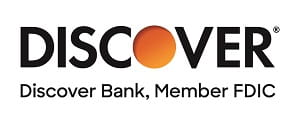The content and opinions provided on this site have not been provided or commissioned by any issuer of the financial products and/or services appearing on this site. The content and opinions have not been reviewed, approved or otherwise endorsed by an issuer. Offers may be subject to change without notice. For more information, please read our full disclaimer.
Getting to know your credit report is a big step in understanding your finances. These reports, made by credit bureaus, show your credit history and help lenders decide if you're a good risk. Learning how to get, read, and understand your credit report can help you make smart money choices and plan for a secure future.
Obtaining Your Credit Report
In the United States, there are three major credit bureaus: Experian, Equifax, and TransUnion. By law, you are entitled to a free annual credit report every 12-months. To access your report, you can visit AnnualCreditReport.com, a website authorized by the federal government. It's essential to read your credit report regularly to ensure its accuracy and identify any potential errors.
When requesting your credit report expect to be able to identify yourself. You will be asked for your social security number, date of birth and possibly the name of one or more of the creditors listed on your credit report. This is to ensure that you alone are the one retrieving the report and someone attempting to impersonate you is not
Ways to Obtain Your Credit Report
- AnnualCreditReport.com: Thanks to the Fair Credit Reporting Act (FCRA), you are entitled to one free copy of your credit report every 12 months from each of the three nationwide credit reporting companies - Experian, Equifax, and TransUnion. You can access this through AnnualCreditReport.com , the only authorized website for free credit reports. To phone in your request call 1-877-322-8228, or mail Annual Credit Report Request Service at P.O. Box 105281, Atlanta, GA 30348-5281. Online access may be available weekly if you choose to request this service from the annualcreditreport.com website.
- Credit Monitoring Services: Companies like Credit Karma, Credit Sesame, or MyFICO offer credit monitoring services that provide access to your credit reports and scores, often for a fee. Some of these services may also offer identity theft protection and alerts for changes in your credit report.
- Directly from Credit Bureaus: You can request your credit report directly from the credit bureaus on a weekly basis now if you like, for free. The Fair Credit Reporting Act legally requires credit reporting agencies to provide consumers with access to their credit report for free once per year, which gives consumers the ability to access their credit report three times per year (one from each agency). However all three have voluntarily decided to provide access weekly.
- Non-profit Counsellors: Approved non-profit credit and housing counsellors can access your credit report and score for free to provide advice on credit issues.
Why You Want to Check Your Credit Report
Making a habit of checking your credit report is a fundamental aspect of maintaining good financial health. It's your first line of defense against credit report errors and identity theft.
Top Reasons to Check Your Credit Report
- Accuracy Check: Your credit report can contain errors that might negatively affect your credit score. Regular checks allow you to spot and dispute any inaccuracies in a timely manner.
- Identity Theft Detection: If you see credit accounts you didn't open or debts that you don’t recognize, you might be a victim of identity theft. Early detection can help ease potential damage.
- Understanding Credit Status: Knowing your credit status and payment history helps when applying for loans or credit cards. Missed payments greater than 30 days will show up on your credit report and could hurt your chances of getting credit. Knowing this information before the lenders look at it will give you an idea of whether you're likely to be approved and what interest rates you might qualify for.
- Planning for the Future: If you're planning to buy a house or car, checking your credit report can help you understand what steps you need to take to improve your creditworthiness.
Reading Your Credit Report
A credit report typically consists of four sections: personal information, credit history, public records, and inquiries.
- Personal Information Section: This section details such as your name, address, Social Security number, and employment information. It's crucial to review this section carefully and report any mistakes that may indicate identity theft.
- Credit History Section: Your credit history is of utmost interest to lenders, as it provides a comprehensive overview of your credit accounts. It includes information all types of accounts you have open such as credit cards, mortgages, car loans, student loans and other credit obligations.
- This section also displays the dates when each account was opened, your credit limit or loan amount, the outstanding balance, and your payment history. Closed accounts in good standing will also be listed on your report and will stay on your credit report until 10-years after the date they were closed. So don’t be surprised if you see accounts that you no longer use.
- Public Records Section: Public records on your credit report will include information obtained from state and county courts. It includes bankruptcies, tax liens, or civil judgments against you. These public records can significantly impact your credit score and financial standing, so it's important to address any issues right away if you can.
- Inquiries Section: Inquiries are when lenders, landlords, or other authorized entities that have accessed your credit report within the past two years. It's important to monitor this section to ensure that all inquiries are legitimate and reflect your actual credit applications. Know that soft inquiries will appear as well as hard inquiries, but only the hard inquiries (occasions where you applied for credit) will impact your credit.
Interpreting Your Credit Report
Interpreting your credit report goes beyond understanding its contents; it involves recognizing how your financial behaviors influence your creditworthiness. Late payments, for instance, have a negative impact on your credit score, while consistently making payments on time can improve it. It's necessary to maintain a track record of responsible credit management to build and maintain a good credit score.
Something else lenders consider is your credit utilization ratio. This ratio represents the amount of credit you are using compared to your total available credit. A high credit utilization ratio can indicate over-dependence on credit, which can negatively affect your credit score. It's essential to keep your credit utilization ratio low by managing your credit responsibly and keeping your balances in check.
How to Fix Errors on a Credit Report
Errors on your credit report can be unsettling. They not only distort the true image of your financial health but could potentially lead to less than desirable loan terms or even outright denials. If you see something in error, work to correct right away so it doesn’t prevent you from obtaining credit when you need it.
The steps to consider when correcting errors on a credit report are:
Step 1: Gather Supporting Documents
If you spot errors, gather evidence to support your claim. This might include bank statements, payment records, court documents, or correspondence with lenders.
Step 2: Contact the Credit Bureau(s)
Once you've gathered your evidence, contact the relevant credit bureau(s). You can do this online, by phone, or by mail. Clearly explain the error and provide copies (not originals) of your supporting documents. Be sure to ask for a return receipt if you're mailing your dispute so you can track the process.
Step 3: Contact the Information Provider
In addition to the credit bureau(s), also want to notify the company that provided the inaccurate information. Include the same documentation and explanation as before. They are obligated to investigate unless they deem your dispute trivial.
Step 4: Wait for Investigation Results
The credit bureau(s) typically must investigate your dispute within 30 days of receiving it , Once the investigation is complete (typically within 45 days), they must provide you with the results five (5) business days after completing an investigation to notify you of the results and provide to you a free copy of your credit report if the dispute resulted in a change. *This copy of your credit report does not replace the annual report you are entitled to each year.
Step 5: Follow Up
If the error is corrected, verify it by requesting another credit report. If the error remains, you may need to escalate your dispute or consult with a lawyer specializing in consumer rights.
Remember, maintaining an accurate credit report is crucial for your financial strength.











